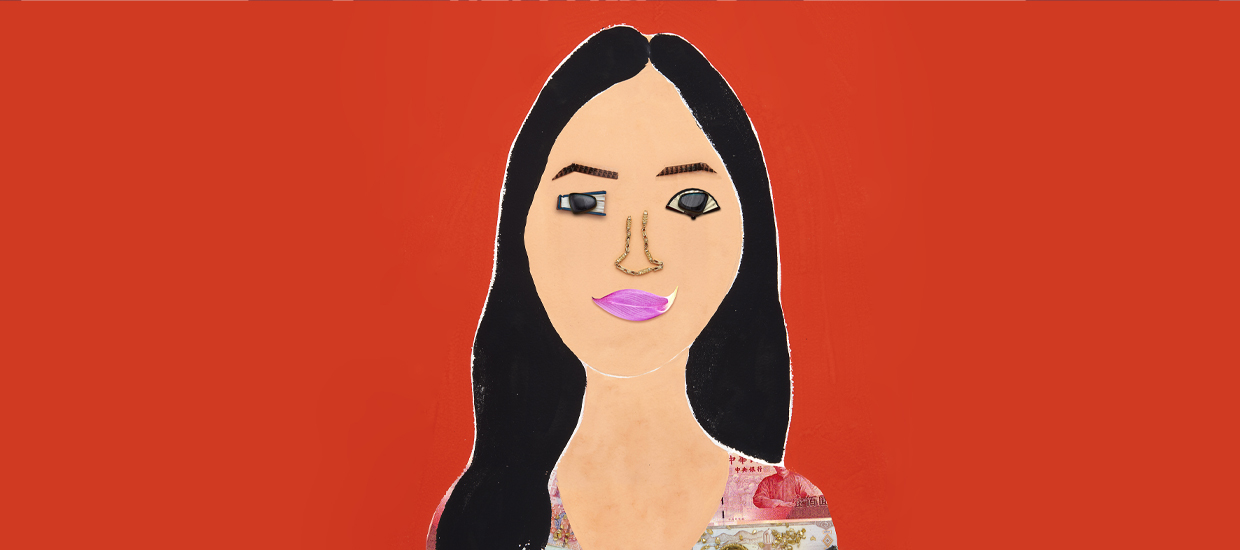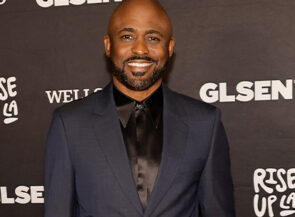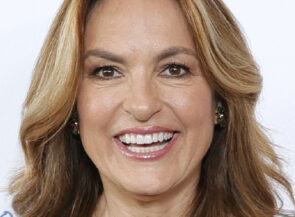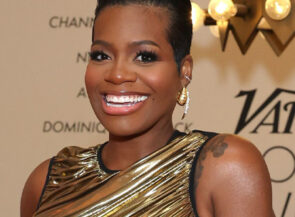The actress best known for Fresh Off the Boat and Crazy Rich Asians addresses tweet controversy and the pressures of being tasked with representing the Asian American community
A few minutes into my Zoom conversation with Constance Wu, her phone rings. “Sorry, that’s my mom,” she says. “She’s trying to FaceTime me, and she never calls just once. If you don’t pick up, she’ll try three more times.”
Most people likely think of Wu as a similarly persistent mother—from 2015 to 2020, she played the tiger mom Jessica on ABC’s Fresh Off the Boat—but the 40-year-old actress, who has a 2-year-old daughter of her own, says that neither she nor her mom are anything like that character. Really, Wu defies comparison to any of her most recognizable roles: Rachel, the economics professor blindsided by her fiancé’s wealth in 2018’s Crazy Rich Asians; Destiny, the savvy stripper in 2019’s Hustlers; Katie, the truth-seeking war correspondent in this past summer’s The Terminal List. “My goal with every project that I choose is always to do something different than the last one,” she says. “[My latest] movie is Lyle, Lyle, Crocodile, and some people are like, Whoa, why is she doing that? But if you’ve been paying attention, it makes perfect sense, because it’s different from the last thing.”
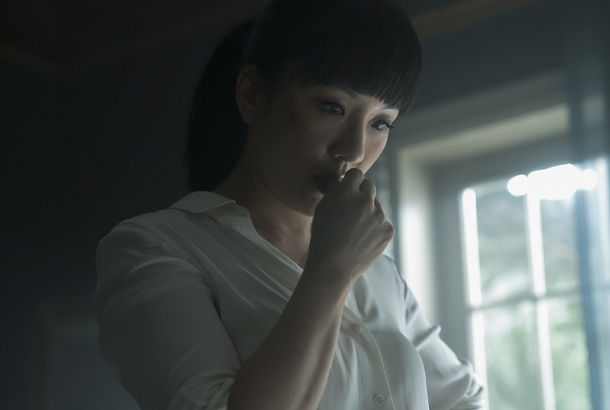
Wu hasn’t expressed her aversion to fitting into a box only on-screen; it’s how she’s lived her life. Born in Virginia to Taiwanese immigrant parents, she has worked as a baker, spent a summer at a Buddhist monastery, and waited oh-so-many tables. She opens up about those steps on her journey—plus the pressures of being tasked with representing the Asian American community—in her new book, Making a Scene (Scribner). Through a series of funny, moving essays, she illustrates that she’s an ever-evolving sum of her experiences.
Among the things she has learned? It’s OK to make her mom wait for a return phone call. “Oh, I’m turning off my ringer,” Wu says, adding with a smile, “but she might try again.”
You made such productive use of the pandemic: having a daughter, writing a book. How did becoming a mom influence the crafting of these very personal essays?
I started writing the book long before the pandemic—probably in 2016. Back then, I thought my book was going to be more political. Around the time I got pregnant, I realized it was a more personal story. The world shut down, like, a week after I dropped out of everything because of my pregnancy. I was able to just have this little bubble of jigsaw puzzles and pickles. Then, when she was born, I had this special time with just her and my partner; it was perfect and lovely.
How did you evolve from writing something political into writing something personal?
It was going to be very politically minded, feminist-toned, all about sexism and misogyny today and how we need to dismantle it. All of us were feeling so much around the time of the 2016 election that you needed a place to organize your feelings and thoughts and make sense of them. I thought the book would be that for me, but then when I started reading what I wrote, it was so all over the place, because my feelings were all over the place, since the political landscape was too. Every once in a while, I’d find a little tidbit of a story that was personal, and I recognized that that would be the only good part of that story. I started realizing that was the story that wanted to come out of me.
Which story did you write first?
The first essay I wrote was “Lucky Bucks,” about my ex-boyfriend. It was very emotional to write. I read it the next day and started to think about other relationships I had that were formative. I thought about my little sister and our ever-changing relationship, which has changed even more, because now she’s pregnant. That led to me thinking about my first bosses, Rich and Sher at the [Montana Gold] bakery. I feel like a Hollywood career seems flimsy next to something as substantial as a loaf of bread; that has been around for centuries. I hope that my book helps people look at their lives with that appreciation. We don’t all have extraordinary stories—my story, up until Hollywood, is quite ordinary. That’s the beauty of it: I go through the things that a lot of people go through.
To put yourself out there like that can be intimidating. When do you feel more exposed—when you’re staring at a blank page or when you’re standing in front of a camera?
Well, it’s a different kind of exposure, because with the blank page, it’s me I’m writing about, so it is very exposing. They say write as if everyone you know is dead and then worry about the rest later. I really did write that way. When you’re acting, you’re exposing very raw parts of your soul—it’s in service of another character, but you’re using your own raw materials to channel that. It’s probably more exposing to act, but it’s not as embarrassing because it’s not you; it’s a character.
There are so many real characters who played such a transformational role in your life. Who were you the most nervous to send the essays to?
My mom and dad. It’s funny, the things that they protested were not what I expected. The thing that mattered most to my dad was the portrayal of his father more so than himself. My grandparents were bamboo farmers, but they also grew sweet potatoes—those are the details that he wanted. With my mom, there were some parts that don’t paint her in the most flattering light, like not wanting to take my dad to the hospital when his gallbladder burst, and she was fine with that. But she was very upset that I said she was pretty. She was like, “I wasn’t that pretty. My face is too round!” My parents haven’t read the whole book, so they haven’t read the chapter about my [sexual exploits], for example. I hope they never do!
Both you and your dad had major epiphanies on overseas flights. He realized his future wife, who became your mom, didn’t love him, and you had the weighty realization that the non-consensual sex you’d had on a date years before was rape.
I didn’t even think about it—that’s true. They say that you’re more likely to cry [while watching] a movie on a plane ride. You have that time to be alone with your thoughts. It’s so rare that we’re in complete silence, so it’s a time to reflect.
You also reflect back on some of the most publicly scrutinized parts of your life—in particular, when you tweeted about how angry you were that Fresh Off the Boat was returning for a sixth season when you already had other projects lined up. The social media fallout from that led to a moment when you came close to taking your own life.
It was a really scary time for me a few years ago, when I almost lost my life, and it forced me to get help and realize I needed help. I didn’t want to write about it—I was like, That chapter is behind me—and my publisher encouraged me to. When you have physical trauma, you have a wound to show for it. But when you have emotional trauma, you don’t really have any wounds, so sometimes it can feel not real. I found that by writing it, it was almost like having a wound to show for it. It validated the experience for me.
What is your relationship with social media like now?
I really didn’t want to go back on social media, but I realized that me opening up the conversation about mental health—especially the fact that Asians themselves were the ones that bullied me the most—is an opportunity to open up a conversation that we need. I decided that was more important than trying to protect myself, because I now feel like I have the tools to handle those emotions, whereas three years ago, I didn’t. I don’t want a girl who’s going through a similar situation, even on a smaller scale, to feel like she’s alone or she has to always be perfect or represent her race in a specific way, even if it means stifling her own voice. It meant enough to me to rejoin this thing that I don’t love.
Why do you think mental health is such a challenging topic in the Asian American community?
There’s an episode of Fresh Off the Boat about how Asian families don’t say “I love you,” but that should be the least awkward thing. In Asia, not saying it is common, but you don’t want to judge their culture and their habits. Growing up straddling cultures, we are navigating both languages—I’m not just talking about spoken languages, but languages of affection and what’s considered appropriate to talk about. We have to find the blend that’s right for us. For me, now it’s right for me to say “I love you” to my parents at the end of a call. It’s awkward for them sometimes, but sometimes things feel awkward, and I’ve decided to accept that.
You’re changing the norm.
But some people think the more loving thing to do is not to put somebody in that awkward position. It’s like in the movie The Farewell: The more loving thing to do is to lie, to spare them the fear. Both sides can have something to argue for it, but there is one way that’s right for you. And I think therapy is a way that you can really discover which way is right for you.
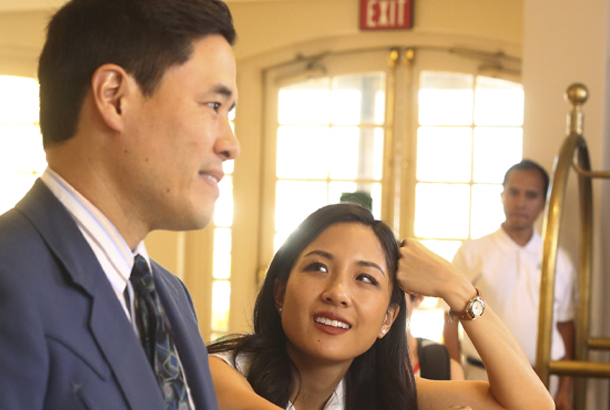
There’s a passage in your book that brought me to tears: when you apologized to the boys who played your sons on Fresh Off the Boat after that tweet. How did that moment shift your perspective?
It meant a lot to me to say I’m sorry to those boys. They’re children, and to have your hat in your hand and realize that your actions affected them, but then to have them be so loving and forgiving—I went into that conversation with the intention of taking care of my kids, and instead my kids took care of me. It’s gonna make me cry now thinking about it. It’s so easy to think the future is bleak when you’re doom-surfing the web, but experiences like that give me a lot of hope for the future, when I think of the kids today and how open-hearted they are, even in this world of social media.
On top of everything else, you turned 40 this year. How did that feel?
I’ve been telling people I’m 40 since I was, like, 37. I thought, If I start preparing for it now, it won’t feel as crazy. But there are a lot of feelings. My body is definitely not as spry as it used to be. I never had knee problems before. Now I do! Sometimes I have to look at a menu with more light. When I was a waitress in my 20s and I saw people doing that, I thought they were faking it, and now I realize they were not. Things like that are humbling. But also, it’s about being at peace with who you are, including writing this book and having a daughter. Just living in the moment rather than hustling to be somewhere or get something. I really get to just enjoy my life.
